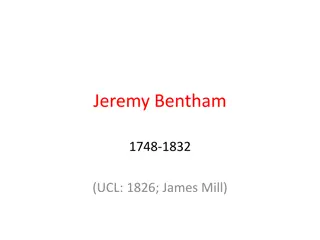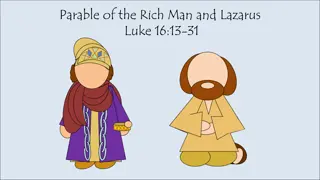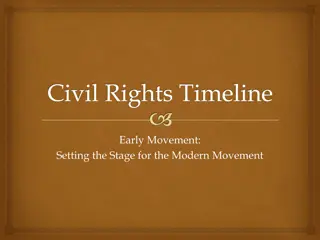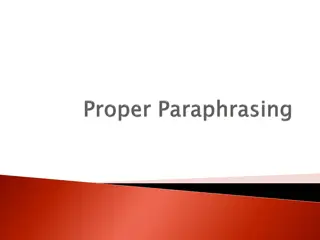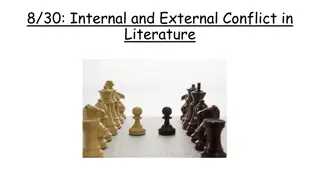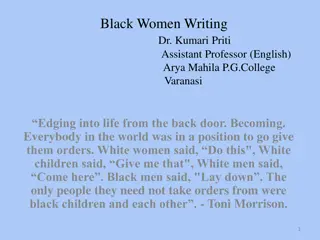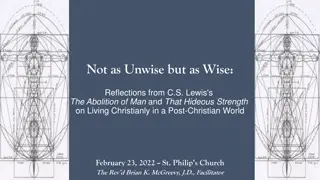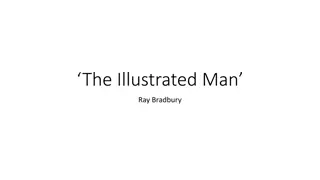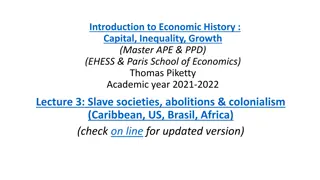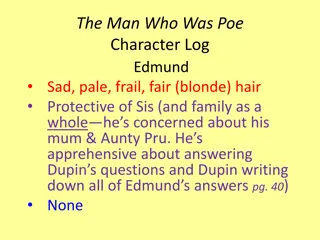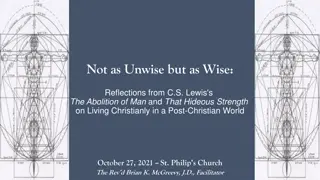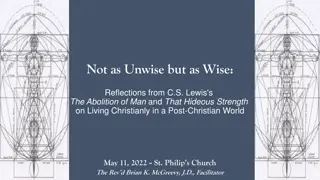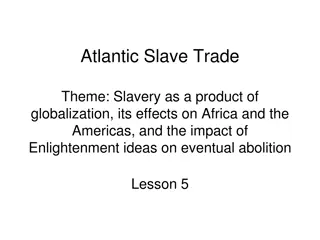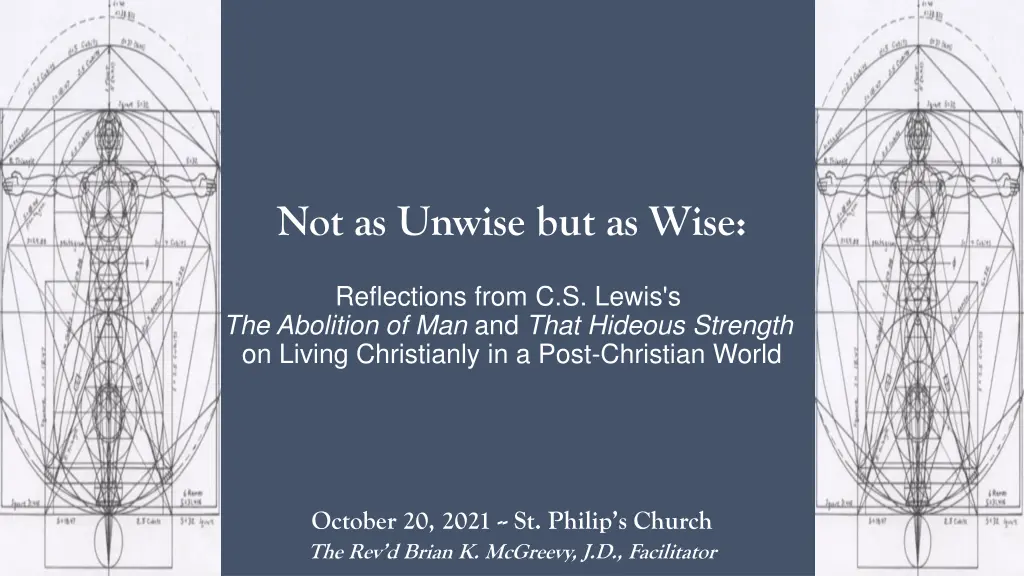
Reflections on Living Christianly in a Post-Christian World
Explore insights from C.S. Lewis's works "The Abolition of Man" and "That Hideous Strength" on navigating a post-Christian society with wisdom and faith. Join discussions on education, virtue, and the relevance of these timeless themes today.
Download Presentation

Please find below an Image/Link to download the presentation.
The content on the website is provided AS IS for your information and personal use only. It may not be sold, licensed, or shared on other websites without obtaining consent from the author. If you encounter any issues during the download, it is possible that the publisher has removed the file from their server.
You are allowed to download the files provided on this website for personal or commercial use, subject to the condition that they are used lawfully. All files are the property of their respective owners.
The content on the website is provided AS IS for your information and personal use only. It may not be sold, licensed, or shared on other websites without obtaining consent from the author.
E N D
Presentation Transcript
Not as Unwise but as Wise: Reflections from C.S. Lewis's The Abolition of Man and That Hideous Strength on Living Christianly in a Post-Christian World October 20, 2021 -- St. Philip s Church The Rev d Brian K. McGreevy, J.D., Facilitator
For at one time you were darkness, but now you are light in the Lord. Walk as children of light (for the fruit of light is found in all that is good and right and true), and try to discern what is pleasing to the Lord. Take no part in the unfruitful works of darkness, but instead expose them. For it is shameful even to speak of the things that they do in secret. But when anything is exposed by the light, it becomes visible, for anything that becomes visible is light. Therefore it says, Awake, O sleeper, and arise from the dead, and Christ will shine on you. Look carefully then how you walk, not as unwise but as wise, making the best use of the time, because the days are evil. Therefore do not be foolish, but understand what the will of the Lord is. Ephesians 5: 8-17
How to approach this class: --On the beach --Snorkeling --Scuba diving --Email list How to read The Abolition of Man: --Why it s not an easy read original audience and the premises of Natural Law --Try reading aloud --One paragraph at a time What we ll be doing each week: --Examining context and establishing a framework for appreciating these books --Unpacking the meaning of Lewis s works --Exploring their relevance for today --Considering how we can respond with practices of Hope and of Wisdom rooted in the Scriptures
Review from previous classes: I. How did C.S. Lewis come to write these two books, what was the context, and how are these two books connected? --C.S. Lewis and how his background prepared him for writing these books: converted atheist, philosopher --The role of the Inklings and Tolkien in conceiving these books --Context of England at War --The Wager --The Riddell Memorial Lectures --Connections between the books In the preface to That Hideous Strength, Lewis states, This is a tall story [pun probably intended] about devilry, though it has behind it a serious point which I have tried to make in my Abolition of Man. II. Education and its fundamental importance for how we view the world --Liberal Arts: Trivium (grammar, logic, and rhetoric) and the Quadrivium (mathematics, geometry, music, and astronomy), seeking to inculcate Virtue. In the Middle Ages, with the advent of universities, Theology (queen of sciences) was the framework for the liberal arts, while philosophy, history, and classical languages and literature (known as the humanities) were added to the traditional liberal arts --St. Augustine: wrote that part of the answer to the despair of skepticism is found in the Christian conviction that Truth is attainable and that knowledge and wisdom are possible, because all Truth derives from God in His creation and His Law, perfectly revealed in Jesus Christ. In City of God, Augustine defined virtue as rightly ordered love (City of God, XV.23), stating in one work: But living a just and holy life requires one to be capable of an objective and impartial evaluation of things: to love things, that is to say, in the right order, so that you do not love what is not to be loved, or fail to love what is to be loved, or have a greater love for what should be loved less, or an equal love for things that should be loved less or more, or a lesser or greater love for things that should be loved equally. (On Christian Doctrine, I.27-28)
The foundational distinction between traditional education and modern education is that the ancients believed that education was fundamentally about shaping loves. The liberal arts [are] a central part of a larger and more robust paradigm of classical education that holistically cultivated the mind, body, will, and affections. (Jain and Clark) Universities and the Liberal Arts Education, and particularly higher education, was part and parcel of the mission of the Church from its earliest days. Universities were unknown in the ancient world and only came into being because the Church started them. What we think of as the great universities like Oxford and Harvard were robustly Christian in their original mission statements. Pragmatism was a philosophical movement in the 19th century which hugely impacted the philosophy of education and its purpose, pushing a utilitarian and economic view of education as about jobs and social reform. The assumption seems to be that the purpose of education is to induce correct opinion rather than to search for wisdom and to liberate the mind. Benno Schmidt, President of Yale University, 1991 Whatever Happened to Philosophy? Philosophy was considered THE most important part of education, and was invariably a required part of university studies answering these questions was the real WHY people went to college. However, over the past 50 years the study of philosophy has shrunk, first being subsumed into a required Western Civilization course, then made optional, and then disdained as IMPRACTICAL (won t help you get a job), politically incorrect, and harmful (Patriarchy of Dead White Men). Up until the early 20th century, if you were a university- educated person, you more than likely would have studied philosophy and would have read Aristotle s Nicomachean Ethics, Plato s Republic, and Augustine s City of God. Who s Afraid of Epistemology? (and Metaphysics) and why you need to know these words: Epistemology is the branch of philosophy which studies the nature and scope of knowledge and justified belief. It considers the relationship between knowledge, truth, belief, reason, evidence, and reliability. Metaphysics is the branch of philosophy which studies being, the nature of existence and reality. So he sent the word to slay/And slew the little childer Surely it must have been a kind of macabre joke on Lewis s part to preface a critique of textbooks with these lines? But no: Herod could but kill the body; our teachers (Lewis thinks) are killing our children s souls, and this is the more grievous sin. Lewis scholar Alan Jacobs
MEN WITHOUT CHESTS Gaius, Titius, and The Green Book Coleridge and the Waterfall: A Deliberate Starting Point Lewis adapts a story from a memoir by Dorothy Wordsworth, recounting a trip she took in 1803 with her brother, William Wordsworth, and his good friend Samuel Taylor Coleridge. What is the problem that frustrated the poet Coleridge? Words and their precise meanings were much more debated and thought about even in Lewis s day than now. Grand, majestic, sublime are in one category, whereas beautiful, attractive, pretty were in an altogether different one. Gaius and Titius believe that we cannot make value judgments about an object, but can only describe our feelings toward it. However, the problem that bothered Coleridge- a problem of denotations and connotations and correct usage is not what Gaius and Titius are addressing. They are making a far bolder statement that Lewis sees not just as wrong but as dangerous: Characteristics of Waterfalls and the Biblical Idea of Living Water -- They have forsaken me, the spring of living water, and have dug their own cisterns, cisterns that cannot hold water Jeremiah 2:13 Lewis used waterfalls to great effect in his writing, two examples being in The Great Divorce and in The Last Battle: Socrates says in Plato s Republic (Book III, 403c) that the object of education is to teach us to love what is beautiful." We ought to love what is truly beautiful, and we ought to love most what is most beautiful. Far from learning skills for work, education should be primarily about love and beauty. --Matt D'Antuono, National Catholic Register, liturgies make us certain kinds of people, and what defines us is what we love. They do this because we are the sorts of animals whose orientation to the world is shaped from the body up more than from the head down. Liturgies aim our love to different ends precisely by training our hearts through our bodies. . . . In short, every liturgy constitutes a pedagogy that teaches us, in all sorts of precognitive ways, to be a certain kind of person. Hence every liturgy is an education, and embedded in every liturgy is an implicit worldview or understanding of the world . ---James K.A. Smith, Desiring the Kiingdom
BOTH THESE STATEMENTS PRESUME THAT BEAUTY IS A REAL, OBJECTIVE VALUE WHICH WE CAN BE TAUGHT TO RECOGNIZE AND TO LOVE. Augustine s On Christian Doctrine:: Living a just and holy life requires one to be capable of an objective and impartial evaluation of things: to love things, that is to say, in the right order. Finally, brothers, whatever is true, whatever is honorable, whatever is just, whatever is pure, whatever is lovely, whatever is commendable, if there is any excellence, if there is anything worthy of praise, think about these things. What you have learnedand received and heard and seen in me practice these things, and the God of peace will be with you. Philippians 4:8-9 Practices of Hope and of Wisdom Contemplate Psalm 42 -- What are you panting for ? God is always trying to give good things to us, but our hands are too full to receive them. Augustine of Hippo, City of God What are your hands filled with and what is filling your mind? Hope and Remember: Focus on living out Philippians 4:8-9 Allow yourself to be present to Beauty and seek to recover Wonder It is well to have specifically holy places, and things, and days, for, without these focal points or reminders, the belief that all is holy and "big with God" will soon dwindle into a mere sentiment. But if these holy places, things, and days cease to remind us, if they obliterate our awareness that all ground is holy and every bush (could we but perceive it) a Burning Bush, then the hallows begin to do harm. C.S. Lewis, Letters to Malcolm: Chiefly on Prayer
MEN WITHOUT CHESTS: PURPOSE AND THEMES What is Lewis trying to do? A great summary from Rev. Dr. Michael Ward s new book, After Humanity: In this enduringly influential book, Lewis defends the objectivity of value, pointing to the universal moral ecology that all great philosophical and religious traditions have acknowledged as self-evident. Though Lewis writes as an apologist for Christianity in many of his other works, he here constructs his argument on purely philosophical grounds, making an anthropological claim, not advancing a theological case. Objective value, he maintains, is humanity s ethical inheritance, which we can extend and develop but may not properly escape. Insofar as we try to deny or subvert this way of being moral, we make ourselves (and those whom we raise or teach or otherwise influence) essentially less than human. We produce men without chests, or in other words, people who have no stable heart, no reliable capacity to liaise between intellect and appetite, no ability to distinguish between what is good in itself and what is good for them. Right thus dissolves into might, and sheer willpower takes the place of reason The result is the erasure of our own true identity, the abolition of man.
To help us unpack the major themes of this chapter, we are going to use the analysis developed by Lewis scholar and Christian philosopher Dr. Davey Naugle, who identifies eight key themes in Men Without Chests : Theme #1: Miseducation The problems of The Green Book and Orbilius is that school children do not learn their lessons in literature that these books are intended to teach ( Another little portion of the human heritage has been quietly taken from them before they were old enough to understand ). Instead they are taught lessons in philosophy in which ethics, theology, and politics are all at stake. At the same time, the children have their souls cut out. How so? 1. By virtue of instruction in emotivism, or the view that all sentences expressing values ( The waterfall is sublime ) are about the emotional state of the speaker, and not about anything objective in the waterfall (or anything else for that matter). 2. That all such statements are unimportant, that all values are subjective, relative, and trivial ( All emotions aroused by local associations are in themselves contrary to reason and contemptible. ) 3. These are not theories put directly into the child s mind, but are assumptions which ten years later, their origin forgotten and their presence unconscious, will condition him to take one side in a controversy which he has never recognized as a controversy at all. 4. These teachers have cut out the soul of the school child, long before he is old enough to choose the possibility of having certain experiences which thinkers of more authority than they (Gaius and Titius) have held to be generous, fruitful, and humane. Theme #2: Uncultivated souls While it is hard to say exactly what Gaius and Titius sought as their purpose, it may be that they intentionally sought to produce what Lewis calls trousered apes and urban blockheads. That is, people who have been shorn clean of traditional values and noble sentiments, giving them a new set of sentiments and values altogether.
Theme #3: Rationale Lewis gives three reasons why he thinks that Gaius and Titius do what they do in their book. One, literary criticism is hard, and it s easier to do what they did do, namely debunk traditional values and ordinate emotion. Two, they falsely think young people are given to emotional excess, and thus need to be fortified against emotion by reason. Three, they reject the doctrine of objective moral value, but this is contrary to the Western and, indeed, worldwide embrace of such a doctrine, a doctrine Lewis calls by the Chinese name, Tao. Regarding the second of the above three points, Lewis makes two points in response. First, most students suffer from a lack of emotion ( cold vulgarity ), not an excess. Two, the best cure for false emotions is to inculcate proper ones. Hence, The task of the modern educator is not to cut down jungles (of false emotions and sentimentality), but to irrigate deserts (water proper sentiments and emotions). Theme #4: Objective moral values Lewis offers a survey of representatives from Western and world sources who advocate the objective, universal, timeless principles and truths, or what Lewis calls the Tao(Chinese for The Way ). His examples are the following: Shelley s Aeolian Harp Traherne s notion of prizing things according to their value St. Augustine s ordo amoris Aristotle s educational dictum that the aim of education in to make the pupil love what he ought Plato s educating future guardians and philosopher-kings to have the right responses based on music and poetic education Hinduism s Rta Chinese Tao Jewish law
It is the doctrine of objective value, the belief that certain attitudes are really true, and others really false, to the kind of thing the universe is, and the kind of things we are And because our approvals and disapprovals are thus recognitions of objective value or responses to objective order, therefore emotional states can be in harmony with reason, or out of harmony with reason. . . . No emotion is, in itself, a judgment; in that sense all emotions and sentiments are alogical. But they can be reasonable or unreasonable as they conform to Reason or fail to conform. The heart never takes the place of the head, but it can and should obey it. Theme #5: Education inside or outside the Tao As Lewis points out, it makes all the difference in the world if education proceeds inside or outside the Tao. The difference is between initiation into the universal human heritage of objective values or conditioning to a new, subjective set of practical values by which people are manipulated pawns For those within, the task is to train in the student the responses which are right, regardless of how many don t make such responses, and in learning to make the right responses their true humanity consists It is but old birds (teachers) teaching young birds (students) how to fly. It means transmitting humanity, humanhood, to young men and women. For those outside, all sentiments and affections are non-rational, and so they must either be removed (cut down the jungle), or they must be given new sentiments which have nothing to do with truth, objectivity, or justness. But here teaching is a form of manipulation, just as a poultry keeper deals with young birds for the market. Lewis uses the example of a Roman father teaching his son that it is a sweet and seemly thing to die for his country (Dulce et decorum est pro patria mori). Lewis evaluates this inside and outside the Tao.
Theme #6: Trained emotions Without the aid of trained emotions, the intellect or mind which knows what to do is powerless against the animal organism. While the mind knows right and wrong almost instinctively, if there is not a corresponding desire in the heart, the right affections, the right love or disposition to DO what is right, then no amount of good reasoning will lead to doing the right thing. It is better (that is, less risky) to play cards with a gentleman who feels there are some things that a gentleman simply does not do, than to play with a philosopher trained by Gaius and Titius! The Head (which knows right and wrong) rules the Belly (animal appetites) through the Chest (ordinate emotions and just affections). That is, only as the Chest, the seat of emotions and sentiments, is rightly trained to respond in accordance with objective moral values, will it be able to control the baser appetites of the Belly. Theme #7: Men without chests The Chest, that is, the human heart, is the liaison officer between cerebral, thinking man and visceral, sensate man. Only as the chest or heart is trained in the proper sentiments (its desert is properly irrigated) will it be able to control the lower desires. But modern education, Gaius and Titius and company, are producing men without chests, men without the formation of the proper middle element by which a person is a person, a man a man or a woman a woman. It is the defect of fertile and generous emotion. It is what Gaius and Titius themselves lack. They are themselves men without chests. Lewis says, The head rules the belly through the chest the seat . . . of emotions organized by trained habit into stable sentiments . . . these are the indispensable liaison officers between cerebral man and visceral man. It may even be said that it is by this middle element that man is man: for by his intellect he is mere spirit and by his appetite mere animal. Theme #8: Moral irony Given the moral collapse of our culture, we clamour for the qualities that we make it impossible to obtain. We cry out in a post-Columbine culture for values, and yet we are destroying the foundations by which such values could be established.
We remove the organ and demand the function. We castrate and bid the geldings be fruitful. Summary: Gaius and Titius debunk ordinate emotions and proper sentiments based on objective values and thereby destroy humanity, and in the process set the culture on the road to ethical, religious, and political disaster where the poison of subjectivism reigns. The Tao of Sentiment (from The Art of Manliness Podcast, August 21, 2021) Nearly all religions and philosophical schools, whether Judaism, Christianity, Hinduism, Aristotelianism, Stoicism, or Platonism, Lewis observes, posit that there is an underlying natural order to the world, and Truth is that which most clearly reflects and explains this reality. To uphold this doctrine of objective value is to believe that certain attitudes are really true, and others really false, to the kind of thing the universe is and the kind of things we are. Lewis feels this perspective is best described by the Chinese concept of Tao: It is the reality beyond all predicates . . . It is Nature, it is the Way, the Road. It is the Way in which the universe goes on, the Way in which things everlastingly emerge, stilly and tranquilly, into space and time. It is also the Way which every man should tread in imitation of that cosmic and supercosmic progression, conforming all activities to that great exemplar. Within the objective reality of Nature, exist people, places, and things which possess an objective value, and are thus deserving of varying levels of esteem and respect: until modern times all teachers and even all men believed the universe to be such that certain emotional reactions on our part could be either congruous or incongruous to it believed, in fact, that objects did not merely receive, but could merit our approval or disapproval, our reverence or our contempt. Given that the value of things is objective, then they should elicit certain responses from us. The night sky should elicit a feeling of humility; the story of a courageous warrior should elicit a feeling of veneration; little children should elicit a feeling of delight; a friend s father s death should elicit a feeling of empathy; a kind act should elicit a feeling of gratitude. While the nature of emotional responses is partly visceral and automatic, a man s sentiments also have to be intentionally educated in order to be congruent to be more in harmony with Nature. Such training teaches a man to evaluate things as more or less Just, True, Beautiful, and Good, and to proportion his affections as merited.
As Lewis notes, this training was considered central to ones development throughout antiquity: While the nature of emotional responses is partly visceral and automatic, a man s sentiments also have to be intentionally educated in order to be congruent to be more in harmony with Nature. Such training teaches a man to evaluate things as more or less Just, True, Beautiful, and Good, and to proportion his affections as merited. St. Augustine defines virtue as ordo amoris, the ordinate condition of the affections in which every object is accorded that kind of degree of love which is appropriate to it. Aristotle says that the aim of education is to make the pupil like and dislike what he ought. . . . Plato before him had said the same. The little human animal will not at first have the right responses. It must be trained to feel pleasure, liking, disgust, and hatred at those things which really are pleasant, likeable, disgusting and hateful. The man who leaves a one-star Yelp review for a national park, scoffs at the brave deeds of a soldier, decides that attending his friend s father s funeral would be too much hassle, or fails to say thank you for a gift, shows the lack of this kind of education of the sentiments. If one believes in objective order and value, then the failure to feel the proper sentiment in the face of a particular stimulus cannot be justified on the basis of mere personal preference, casually categorized under the rubric of to each his own ; rather, it must be frankly countenanced as a deficiency in one s human make-up. As Lewis confesses, I myself do not enjoy the society of small children: because I speak from within the Tao I recognize this as a defect in myself just as a man may have to recognize that he is tone deaf or colour blind. To follow the Taoin this sense is to see things as possessing a quality which demands a certain response from us whether we make it or not.
Eustace Scrubb, Experiment House, and education There was a boy called Eustace Clarence Scrubb, and he almost deserved it. His parents called him Eustace Clarence and masters called him Scrubb . I can't tell you how his friends spoke to him, for he had none. He didn't call his father and mother Father and Mother , but Harold and Alberta . They were very up-to-date and advanced people. They were vegetarians, non-smokers, and teetotalers and wore a special kind of underclothes. And in their house there was very little furniture and very few clothes on beds and the windows were always open. Eustace Clarence like animals, especially beetles, if they were dead and pinned on a card. He liked books if they were books of information and had pictures of grain elevators or of fat foreign children doing exercises in model schools. Voyage of the Dawn Treader Lewis had very strong views on education, which were heavily colored by his own experiences with badly run schools. He was especially leery of progressive education, which he believed was based on faddish psychological theories that were designed to supplant classical education, along with its Christian foundations. His ideas on education, most fully developed in The Abolition of Man and the novel That Hideous Strength, predicted that the outcome of such education would be Relativism the idea that there are no absolute truths leading to the decay of morality and a lack of virtue within society. Without a belief in and the teaching of universal moral laws, we fail to educate the the heart and are left with intelligent men who behave like animals or as Lewis puts it, Men without Chests. C.S. Lewis Institute Reflections 8-17-12 "In the penultimate Narnia novel, The Silver Chair (1953), we discover the kind of school which Eustace Scrubb s very advanced parents choose for their only child: Experiment House. This school is a delicious illustration of the early days of progressive education in Britain, when it was still confined to a very few private establishments that catered to the tastes of the self-consciously forward thinking middle classes, and before it was inflicted on the masses following the 1967 Plowden Report At Experiment House, discipline is lax, and the school is terrorised by a vicious group of bullies. The worst that might happen to the bullies is that they may be called into the headmistress office for a long chat, after which
they are more likely to be favoured than punished. When Eustace and his schoolmate Jill arrive in Narnia, they are somewhat nonplussed to be referred to as a son of Adam and a daughter of Eve . At Experiment House, you don t learn such things as the identity of Adam and Eve. In fact, the main thing you learn is how to survive the bullies reign of terror either by hiding, or usually by collaborating and informing on your friends. But the most dramatic moment is saved for the end of the novel, when King Caspian and Aslan enter the school and teach the bullies a lesson they are unlikely to forget. The headmistress calls the police to report the invasion, and in the fuss which follows there is an investigation into the school. The headmistress friends decide she isn t actually much good at being in charge of a school, so they get her a job as a school inspector. When she turns out not to be good at that either, they get her into Parliament, where she lives happily ever after. It s all there, in 1953: a chaotic school with weak management and a curriculum which leaves pupils ignorant of even the most basic elements of their cultural heritage. But in 1953 you had to pay for the privilege of receiving such an education. The poor benighted masses had to wait another fourteen years for enlightenment to dawn. -- Progressivism for the Posh by Anthony Radice, Traditional Teacher 4-19-15 Most of us know what we should expect to find in a dragon's lair, but, as I said before, Eustace had read only the wrong books. They had a lot to say about exports and imports and governments and drains, but they were weak on dragons. Voyage of the Dawn Treader
Practices of Hope and of Wisdom Finally, brothers, whatever is true, whatever is honorable, whatever is just, whatever is pure, whatever is lovely, whatever is commendable, if there is any excellence, if there is anything worthy of praise, think about these things. What you have learnedand received and heard and seen in me practice these things, and the God of peace will be with you. Philippians 4:8-9 Read things that are beautiful and full of hope, especially books that depict the Beauty, Truth, and Goodness of the Christian worldview---The Chronicles of Narnia and The Lord of the Rings, for example and poetry (Hopkins, Donne, Herbert, etc.) Listen to the beautiful order of classical music, choral and instrumental Memorize Scripture that encourages you with the wonder of God s love!
For at one time you were darkness, but now you are light in the Lord. Walk as children of light (for the fruit of light is found in all that is good and right and true), and try to discern what is pleasing to the Lord. Take no part in the unfruitful works of darkness, but instead expose them. For it is shameful even to speak of the things that they do in secret. But when anything is exposed by the light, it becomes visible, for anything that becomes visible is light. Therefore it says, Awake, O sleeper, and arise from the dead, and Christ will shine on you. Look carefully then how you walk, not as unwise but as wise, making the best use of the time, because the days are evil. Therefore do not be foolish, but understand what the will of the Lord is. Ephesians 5: 8-17

